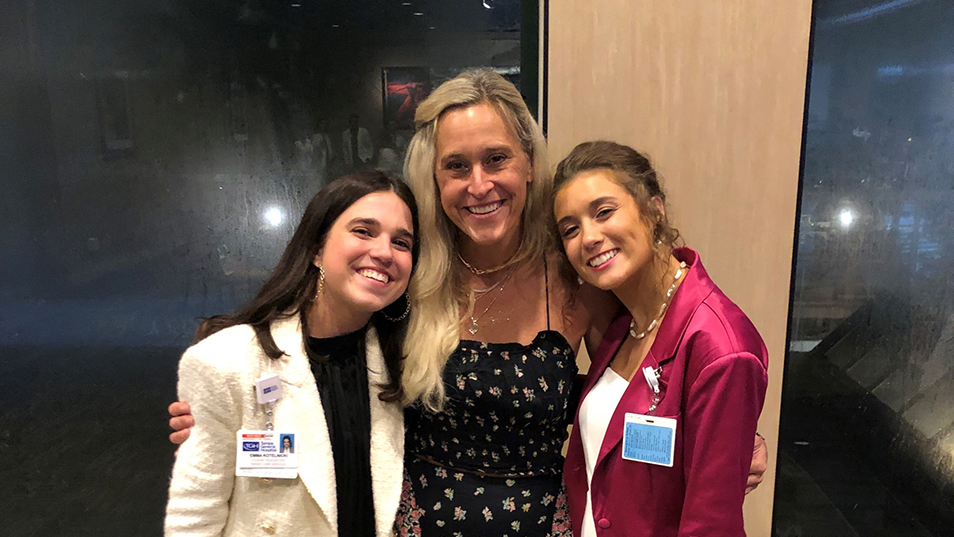Contact us
401 W. Kennedy Blvd.
Tampa, FL 33606-13490
(813) 253-3333
Most people don’t ever get the chance to hold a heart in their hands.

Emma Kotelnicki ’24 (left) and Alexandra Baker ’24 (right) celebrate the Lifelink Internship banquet with Jennifer Wortham, their professor (center). Photo courtesy of Jennifer Wortham
More UT News